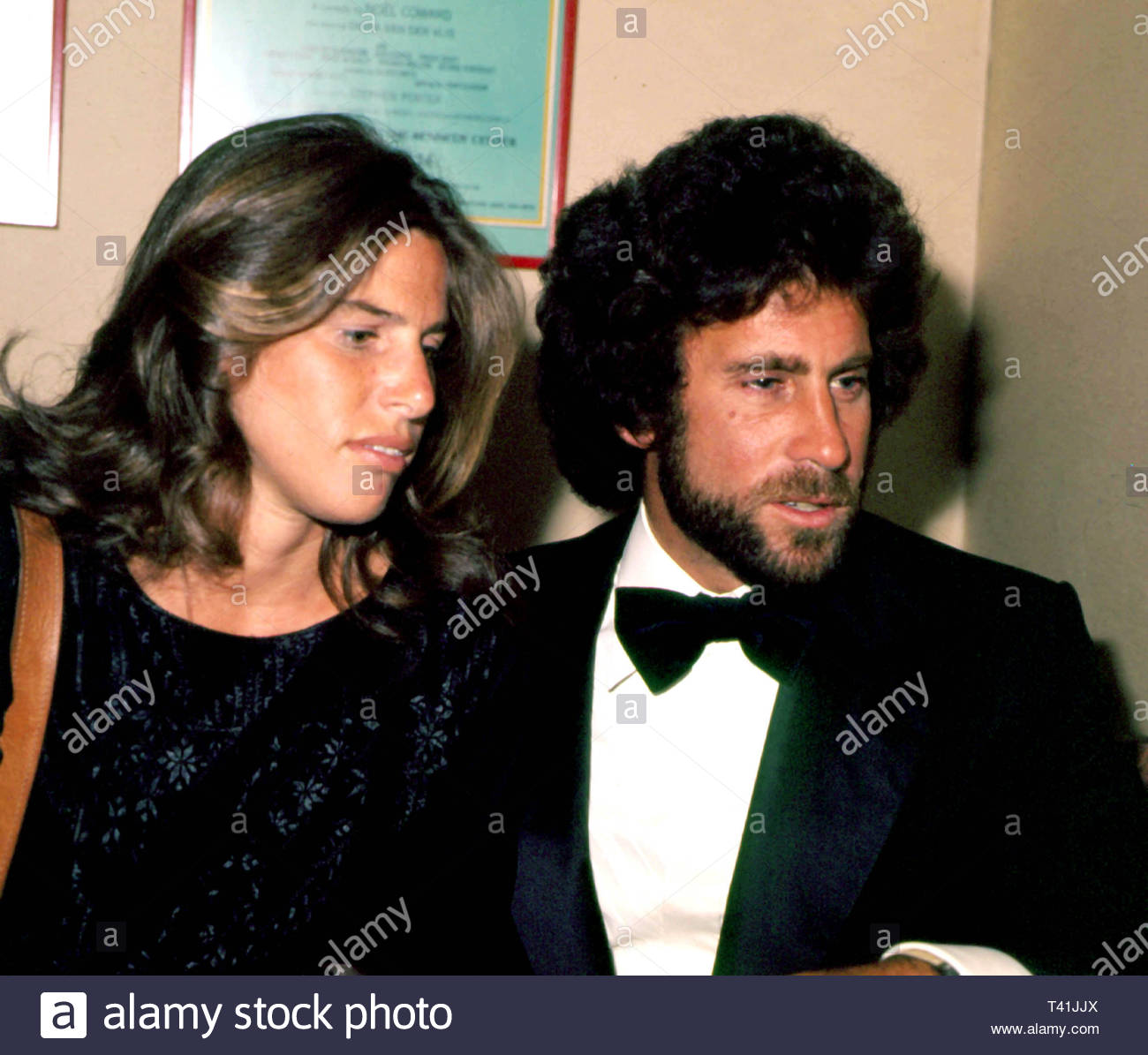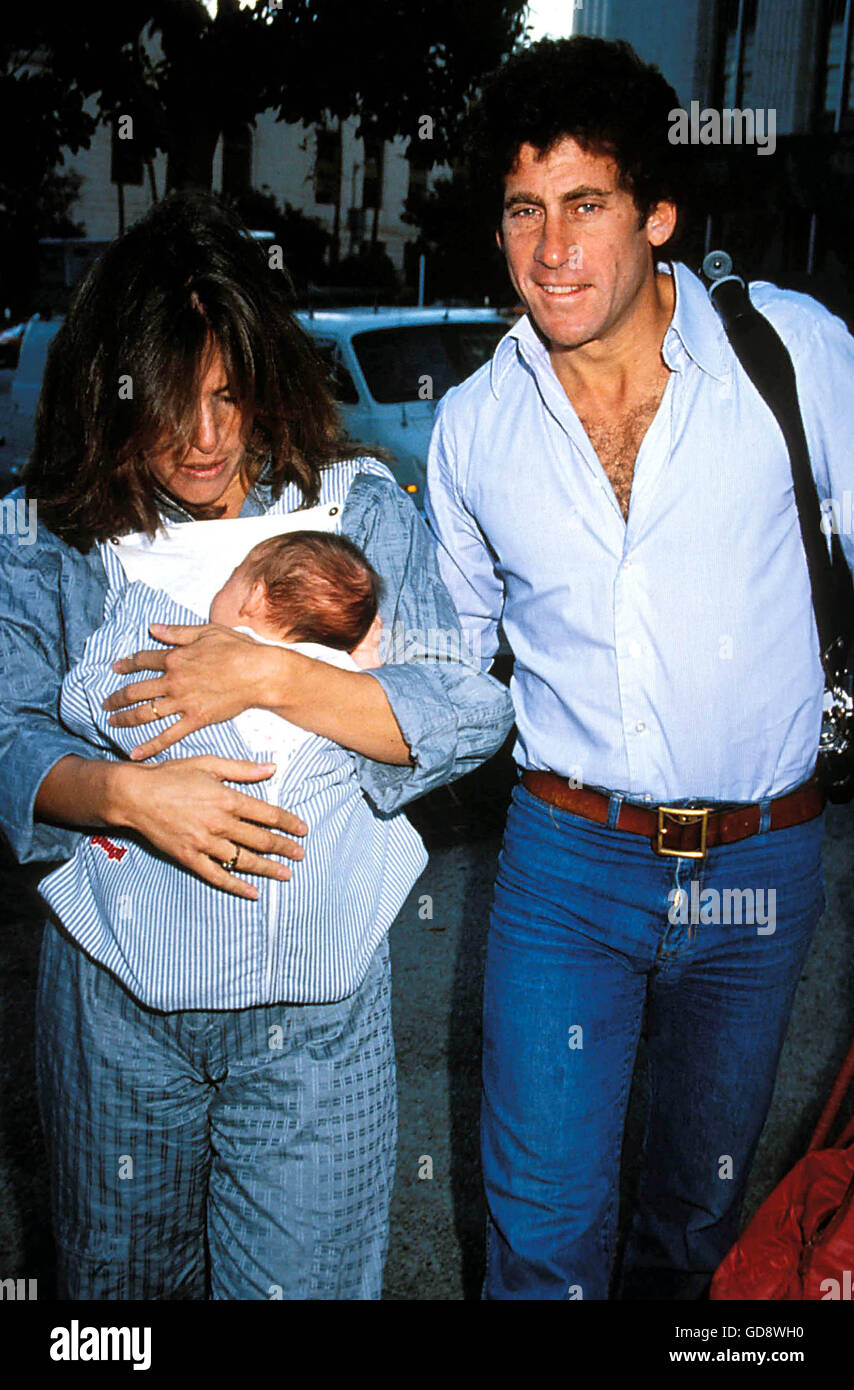Unveiling Paul Michael Glaser's Life: Spouse, Tragedy & Triumph
Can the echoes of love truly transcend the boundaries of time and loss? For Paul Michael Glaser, the iconic face of Detective Dave Starsky, the answer is a resounding, poignant yes.
At seventy, Glaser's life story isn't just a collection of acting credits; it's a tapestry woven with the threads of immense joy, unimaginable sorrow, and unwavering resilience. The glitz and glamour of Hollywood, the roar of the engines on the Starsky & Hutch set, and the subsequent transition to directing these are chapters in a story punctuated by profound personal tragedies. His reflections, tinged with the weight of experience, reveal a man who has grappled with the darkest shadows of life and emerged, if not unscathed, then certainly unbowed. The legacy of his wife, Elizabeth, and their daughter, Ariel, continues to burn brightly through the dedication he has shown to the Elizabeth Glaser Pediatric AIDS Foundation. The path he walked has been a complex one, and his story is worthy of being told in detail.
| Category | Details |
|---|---|
| Full Name | Paul Manfred Glaser |
| Date of Birth | March 25, 1943 |
| Place of Birth | Cambridge, Massachusetts, USA |
| Nationality | American |
| Known For | Detective Dave Starsky in Starsky & Hutch; Director |
| Spouse(s) | Elizabeth Glaser (deceased), Tracy Barone (current) |
| Children | Jake Glaser (son), Ariel Glaser (daughter, deceased) |
| Education | Bachelor of Arts from Tulane University, Master of Arts from Boston University |
| Career Highlights |
|
| Awards and Recognition | Nominated for a Golden Globe Award for Best Actor Television Series Drama (Starsky & Hutch) |
| Notable Philanthropy | Honorary board member of the Elizabeth Glaser Pediatric AIDS Foundation |
| Website Reference | IMDB |
Paul Michael Glaser's name is forever etched in the annals of television history thanks to his portrayal of Detective Dave Starsky in the iconic series, Starsky & Hutch. The show, with its thrilling car chases, the unforgettable red and white striped Ford Gran Torino, and the undeniable chemistry between Glaser and David Soul, became a cultural phenomenon. The streets of Bay City, USA, were no longer just the setting for crime, but a playground for two of television's most beloved detectives. The series, which ran from 1975 to 1979, captured the imagination of audiences worldwide, turning Glaser into an international star. But beyond the flashing lights and the roar of the engines, another, more profound, story was unfolding.
The whirlwind of the 1970s, the era that made Glaser a household name, was also the genesis of the heart-wrenching chapter in his personal life. In 1981, while his professional life soared to new heights, the world around him began to crumble. Glaser and his first wife, Elizabeth, were expecting their first child. It should have been a time of unbridled joy, of dreams taking shape and futures being built. The arrival of a daughter, Ariel, was met with immense happiness, but the shadows of an unseen enemy were already beginning to gather. Unbeknownst to anyone at the time, the blood transfusion Elizabeth received during childbirth would change everything. It was a time of innocence and medical advancement but it was also a time when the specter of a new and devastating disease was just beginning to emerge.
Doctors, at the time, could not foresee the looming danger. The blood that saved Elizabeths life carried a silent killer: HIV. The ramifications of this would become devastating. Elizabeth, in turn, passed the virus to Ariel during childbirth. The glasers' world was turned upside down. The diagnosis of AIDS was not just a medical fact; it was a death sentence, a cruel twist of fate that would consume both mother and daughter. Glaser's life was irrevocably altered by this unseen enemy.
The toll on the family was immense, both emotionally and practically. The couple found themselves thrust into the role of advocates, battling not only a disease but also the stigma and misinformation that surrounded it. In the face of such tragedy, Glaser's personal resolve was put to the test. The loss of Elizabeth in 1994, followed by the death of Ariel, was a double blow that could have broken any man. Yet, he found the strength to persist, to speak out, and to fight.
Glaser, the director and actor, became an unlikely crusader. His story, alongside Elizabeth's, became headline news. They used their platform to educate the public, to dispel myths, and to raise awareness about the devastating impact of AIDS, especially on children. The impact of their decision to speak out and to openly share their experiences cannot be overstated. Their bravery shone a light in a dark period. They were among the first public figures to openly confront the epidemic and the stigma that surrounded it. It takes courage to bare one's soul to the world. It is a powerful testament to their courage and determination.
Glasers current wife, Tracy Barone, entered the picture after Elizabeths passing. Her presence became a symbol of hope and a new beginning. Paul Michael Glaser found love and companionship again. It is a powerful reminder of the human capacity to endure, to heal, and to find joy even after experiencing profound loss.
His dedication extended beyond the personal. He actively supported the Elizabeth Glaser Pediatric AIDS Foundation, an organization founded by his late wife, to which he continues to be deeply committed. The foundation has raised over $30 million, providing crucial support for research, care, and prevention. His continued involvement speaks volumes about his character. It is a testament to his commitment to honoring the memory of his wife and daughter by fighting tirelessly against the disease that took them too soon.
The transformation from actor to director was a natural progression for Glaser. With the success of Starsky & Hutch, his career opened up new opportunities, eventually leading him behind the camera. He brought his own unique vision to various projects. He directed films like The Running Man and Kazaam, showcasing his versatility and his commitment to storytelling. He continued to work in television. His role as Captain Jack Steeper in the NBC series Third Watch is one of his most notable. Glaser also has continued to act in film, television, and on stage. His passion for the craft remains undiminished.
The impact of Starsky & Hutch continues to resonate with audiences worldwide. The show has found new life through syndication and streaming services, introducing new generations to the charm and action that defined the series. Beyond the entertainment value, the show also captured a certain energy of its time, a reflection of the societal shifts and cultural vibrancy of the 1970s. Today, it provides a sense of nostalgia and a reminder of simpler times. Even after all these years, fans still recall favorite episodes. Glaser has never forgotten his role in the show's creation.
When asked what made him want to be an actor, the response reveals a different side to Glaser, one beyond the glitz and glamour. He credits his two older sisters with sparking his creative fire, with inspiring his love of storytelling and the performing arts. It is another facet of his personality, a glimpse into the family dynamic that shaped him.
Glaser's story is a poignant reminder of the resilience of the human spirit. He has experienced immense sorrow and yet has chosen to embrace life with an open heart. His reflections, captured in his interviews and his public appearances, reveal a man of profound depth and unwavering strength. Paul Michael Glasers legacy extends beyond the world of entertainment. He is an inspiration, a testament to the enduring power of love, family, and the determination to make a difference in the face of adversity. The lessons he learned from the tragedies in his life continue to impact others. His story, a blend of tragedy and triumph, stands as a beacon of hope for all those struggling with loss, reminding us that even in the darkest of times, the light of the human spirit can still shine brightly.


